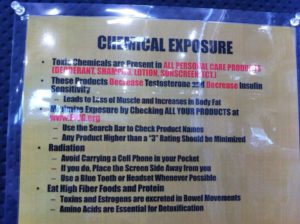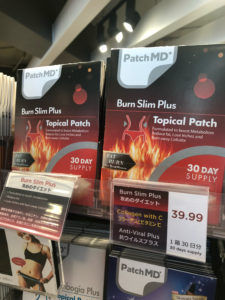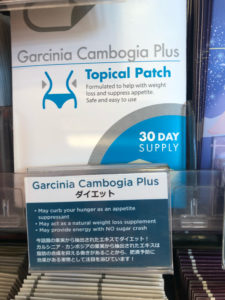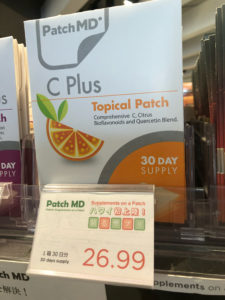健康第一って昔から広く言われていますがその本当にその通りです。
今現在で自分や身の回りの方に何かがあった訳ではありませんが、「生涯健康」の大事さに気がついたのは10年前です。
運悪くインフルエンザにかかった時に本当にキツくて通勤の車の運転でも初めて、運転に危険を感じました。
その時に「もうこんな思いしたくない」と思って、体調管理は徹底しようと思いましたが健康を維持するために知っていることは「3度のバランスの良い食事」と「早寝早起き」くらいで小学生の知識と全然変わっていませんでした。
食べ物(食品添加物や残留農薬は口から入ってくるリスク)はなんとなく話としては聞いたことがありましたが「国の基準があってOKなのだから問題ないだろう」いう人任せな考えでした。
口から入ってくるリスクは知れば知るほど恐ろしい物があったりして、先日も高級アイスクリームから発がんの物質https://news.yahoo.co.jp/articles/4daf90aba2c3866d281a96699b088ef952cf608a が検出されたりがニュースになっていました。
有害な添加物や残留農薬が身体に影響しそうなのは分かりましたがそれ以上に知らなかったのは皮膚から体内に入ってくるパターンの危険性です。
アメリカのアメリカンフットボールのチーム(SF49ers)でトレーニングのセミナーがあったときにクラブハウスに貼ってあったものです

・パーソナルケア(シャンプーやローション、サンスクリーンなど)はテストステロンを低下させて、インシュリンの感受性を低下
させる。
・放射線:ポケットに携帯を入れない。
・毒素、エストロゲンは排泄されるので食物繊維とタンパク質は多く摂る。
・アミノ酸はデトックスに不可欠
などが記載してありました。
- アメリカの学校でも習った事はありませんでしたが当然日本でも聞いたことがない概念でした
- まだまだ若いし、大きな健康問題はありませんが20-30年後の事なんてわかりません。
アスレティックトレーナーはスポーツ現場の安全を守って「予防やリハビリ」をメインに従事していますが
自分の健康問題の「予防」については無知すぎて物凄く興味が出てたくさんのセミナーや書籍で調べました。
一個ずつ話すと長いのですが、化学物質は非常に分子が細かくて皮膚の網目から侵入する可能性です。
海外では経皮吸収のサプリメントもたくさん売られていますし、湿布薬やニコチンパッド、塗り薬など考えると皮膚から直接体内に入れる方法というのはたくさんありますね。



10年前にスポーツアロマというのを治療としてやっている方がいて、皮膚からのアロマの効果でアスリートにとって良い効果を出すのは知っていました。単なる匂いだけでなくアロマ自体もヨーロッパでは治療になりますが日本では雑貨扱いなので日本では100円均一で売られていますね。
アロマと言っても抽出方法が違ったり、化学物質を添加して匂いだけ変えるなど本来の形とは違って日本では使われているところも多いですが規制の違いです
アロマや食品添加物や残留農薬も国の違いがあったりしますが、日本は凄く安全と思っていました。
もちろん直ちに影響はないので「危険」ではないのですが、これから50年以上元気でいたいと思っている自分にとってはこの規制は不十分だなと素人でも理解できました。
結果的に少しでも安全で、人体だけでなく環境にも良いものを選ぶ思考に変わっていき、
要するに自分は無知でした。性格的に理論や理屈を知ったらやり続けるので、当然自分自身の考えも毎日の習慣も変わっていきました。
日頃のセッションではあまりこういった話をしませんが、栄養や身体のケアだけでは運動するにも健康を守る上で不十分だなと自分では思っています。
日々の習慣が大事だと思っているので、
身体に良いことはたくさんやって、
身体に悪いことはどんどん減らす、もしくは止める。
知らないことは今から始めたら良いだけです。
Health Comes First: Reflections on Lifelong Wellness
“Health comes first” is a phrase we’ve all heard before, and I couldn’t agree more. While nothing significant has happened to me or those around me recently, I first realized the importance of lifelong health ten years ago.
It hit me when I caught the flu and felt utterly drained. For the first time, I found driving to work dangerous due to my condition. At that moment, I promised myself, *“I never want to feel this way again,”* and committed to taking my health seriously.
Back then, my knowledge about maintaining health was limited to basic principles like “eat three balanced meals a day” and “go to bed early and wake up early”—concepts most of us learn as children. I had vaguely heard about risks like food additives and pesticide residues, but I assumed they were safe because they were “approved under national standards.” I left the responsibility to others and didn’t question it.
The more I learned about these risks, however, the scarier they became. Recently, there was even news about a high-end ice cream containing carcinogenic substances【source】.
Beyond Diet: What We Absorb Through the Skin
While the dangers of consuming harmful additives or pesticide residues are becoming more widely known, what surprised me even more was the risk of chemicals entering the body through the skin.
I attended a training seminar hosted by the San Francisco 49ers American football team, where I saw a notice in the clubhouse that included the following warnings:
– Personal care products (shampoos, lotions, sunscreens) can reduce testosterone and insulin sensitivity.
– Radiation: Avoid keeping cell phones in your pockets.
– Toxins and estrogens:** These can be excreted through dietary fiber and protein, so ensure adequate intake.
– Amino acids:** Essential for detoxification.
I had never heard of these concepts before—not in school in the U.S., and certainly not in Japan. While I’m still young and relatively healthy now, who knows what could happen in 20 or 30 years?
Ignorance Turned Awareness
As an athletic trainer, my primary focus has always been ensuring safety at sports events and helping athletes prevent and rehabilitate injuries. But I realized I was shockingly unaware of how to *prevent* my own potential health issues. This sparked my curiosity, leading me to attend numerous seminars and dive into books on the topic.
One of the most alarming discoveries was that chemicals are incredibly small at the molecular level and can penetrate the skin. In fact, transdermal supplements are widely available overseas, and there are many medical applications—like pain relief patches, nicotine patches, and topical medications—that rely on absorption through the skin.
Ten years ago, I learned about sports aromatherapy and how certain essential oils applied to the skin could benefit athletes—not just through scent but as a form of treatment. While aromatherapy is considered legitimate therapy in Europe, in Japan, it’s often treated as a commodity, with products even sold at 100-yen shops.
However, not all aromatherapy products are created equal. Many in Japan use synthetic additives or rely solely on altered scents, deviating from the natural therapeutic forms used elsewhere.
Japan’s Perception of Safety
I used to believe Japan was incredibly safe when it came to food and chemical regulations. And while the risks may not be immediate, I’ve come to realize that these regulations may not be sufficient for someone like me who wants to stay healthy for the next 50 years or more.
This realization shifted my mindset: I began prioritizing safer choices—not just for my body but for the environment as well.
Simply put, I was ignorant. But once I understood the reasoning and science behind these concepts, I made changes to both my habits and beliefs.
The Bigger Picture: More Than Just Exercise and Nutrition
Although I don’t often discuss these topics during sessions, I’ve come to believe that exercise and nutrition alone are not enough to maintain health or even support an active lifestyle. Daily habits are crucial.
The formula I follow is simple:
– Do more of what’s good for your body.
– Reduce or eliminate what’s bad for it.
– If you don’t know something, start learning and taking action today.

